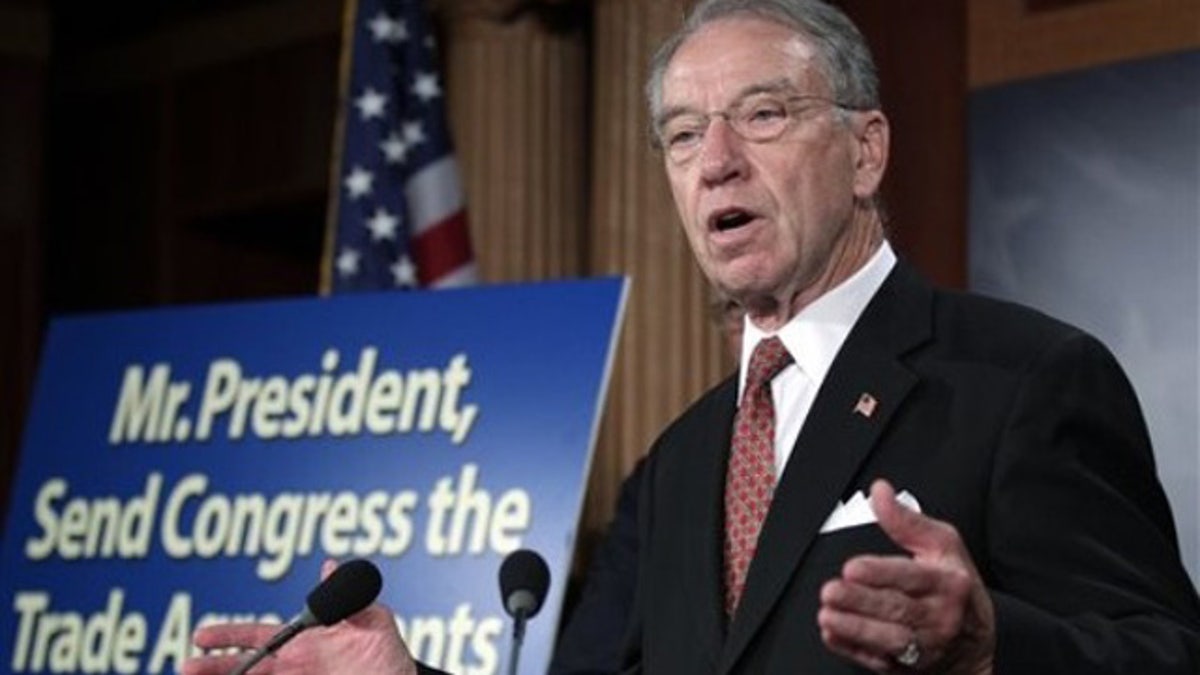
Wants answers: Sen. Charles Grassley fired off a letter to DEA brass. (AP)
Sen. Charles Grassley is standing by his threat to place a hold on two nominees to the Federal Communications Commission over concerns about a controversial new wireless network the agency has allowed to move forward.
The Iowa Republican this week accused the FCC of refusing to comply with his requests for information on its discussions with Virginia company LightSquared regarding its next-generation national wireless network.
Some fear the network would hinder the effectiveness of high-precision GPS systems -- used by the military, farmers and others. Grassley also raised questions about the involvement of Harbinger, the hedge fund behind the project and founded by Democratic donor Philip Falcone.
Grassley has asked the FCC for information about its discussions with other agencies regarding the network, as well as discussions with LightSquared and its parent company, and about testing that may have been performed on possible GPS interference.
Grassley claims the FCC has not cooperated.
"There's nothing new on whether the FCC will provide the information I requested," Grassley said in a statement. "As a result, my intention to place a hold on the FCC nominees, should they reach the floor, stands.
"The FCC needs to make itself accountable to Congress and the American people. An agency with control over a major piece of the economy can't be allowed to operate as a closed shop," he said.
Grassley first threatened a month ago to hold up nominees over his concerns.
A representative with the FCC did not return a request for comment.
The nominees caught in the crossfire are Jessica Rosenworcel and Ajit Varadaraj Pai, who came before the Senate Committee on Commerce, Science, and Transportation this week for their nomination hearing. Rosenworcel is a senior attorney for a Senate Commerce subcommittee; Pai is an attorney with experience at the FCC.
As Grassley threatened to sideline the nominations, Committee Chairman Sen. John Rockefeller, D-W.Va., described them as "devoted public servants" and called for quick confirmation.
"Both have a background at the FCC, Congress, and the private sector, which allows them to have a deep understanding of communications policy and the impact it has on everyday life in our country," he said in a statement.
But Grassley is using them as leverage to find out more about the potential interference the LightSquared network could cause to GPS systems. A primary concern is the system's impact on the military.
An Air Force general testified earlier this year that the network's signals would interfere with GPS receivers based on testing. At the time, sources claimed the general was pressured to change his testimony to favor LightSquared -- though Falcone later denied claims of political interference.
The company has since announced plans to develop filters and take other steps to mostly eliminate the interference problem. But farmers are still concerned about the technology, considering they depend on GPS systems for everything from driving tractors to watering plants.
At a hearing in October, agriculture industry representatives voiced concern about the program, while crop producers wrote to the FCC urging the agency to conduct more testing.




